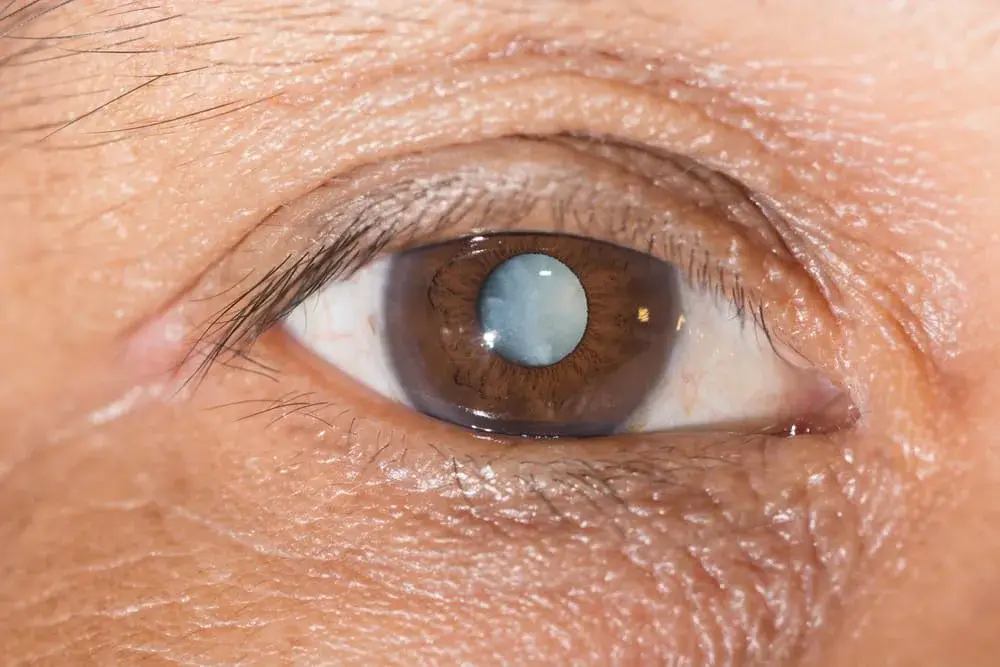Has your optometrist talked to you about cataracts? You might be aware that the older you get, the higher your risk for cataracts. Learn how to prevent cataracts, and you can keep your vision sharp into your senior years and beyond.
How to Prevent Cataracts
It’s important to take age-related eye issues seriously, especially before they become a problem for you. One of the best ways to do that is to educate yourself about them. For example: did you know that age is the number one risk factor for developing cataracts? Luckily, there are plenty of things you can do to avoid cataracts, no matter what age you are. Learning how to prevent cataracts is a great way to take proactive care of your vision.
What Is a Cataract?
Cataracts occur when something happens to cloud your eye’s lens. Sometimes a cataract is visible, but sometimes it’s not. Cataracts grow slowly, and you may not notice any effect on your vision at first. However, a cataract will eventually make itself known through incremental changes to your vision:
- Blurriness or “halos” around objects
- Cloudy or blurry vision
- Poor night vision
- Difficulty discerning color or other details
Once a cataract has started affecting your vision, the only effective cure is surgery. While cataract surgery is a safe and common procedure, you’ll probably be happier if you can avoid getting a cataract in the first place. So, how can you do that?
Cataract Prevention Strategies
While there is no straightforward cause or cure for cataracts, we do know a lot about how they form and why. Based on that information, the experts at The Mayo Clinic recommend the following for those interested in cataract prevention:
- Focus on a healthy diet. Studies have shown that there are positive connections between a diet rich in vitamins and nutrients and a lack of cataracts. Fruits and vegetables have antioxidants, which promote overall eye health. Be sure to include plenty of fresh, colorful food on your plate. Avoid alcohol use, as that can make cataracts worse.
- Protect your eyes from the sun. Ultraviolet (UV) rays can damage your eyes and may cause cataracts to develop. Wear sunglasses outdoors, and consider a sunhat or other protection on particularly sunny days.
- Be proactive about managing your health. There are some medical conditions that can cause or worsen cataracts, such as diabetes. Talk to your doctor about your overall health and cataract risk. Be ready to make lifestyle changes if needed. If you’re still smoking, now is a great time to quit.
- See your optometrist regularly. Seeing your optometrist as recommended is the best way to catch vision problems before they get too serious. Ask your optometrist how often you should have your eyes examined. They will have a recommendation based on your age and other health factors.
What Should I Do If I Think I Have Cataracts?
Only an optometrist can tell you for sure if you have issues with cataracts. Cataract symptoms can mimic the symptoms of other age-related eye issues, like nearsightedness. No matter what you think the cause is, if you experience any changes in your vision, it’s time to make an appointment with your optometrist. Don’t wait!
_____
Now that you have a plan for how to prevent cataracts, it’s time to put it into action. Is it time for you to visit the optometrist? If you live in southwest Missouri, contact Heffington’s today.
Since 1975, the Heffington family has been assisting the Springfield community with top-quality eye care and affordable eyeglasses and contacts. One of the unique features of our family-owned business is that we manufacture lenses at our own laboratory, giving us total control over the service and pricing, and we’re happy to pass our savings on to you. To learn more about our products and services, please get in touch with us online, send an email to asktheexperts@heffingtons.com, or give us a call at 417-869-3937 (Optiland location) or 417-882-3937 (House of Vision location). We look forward to hearing from you.

